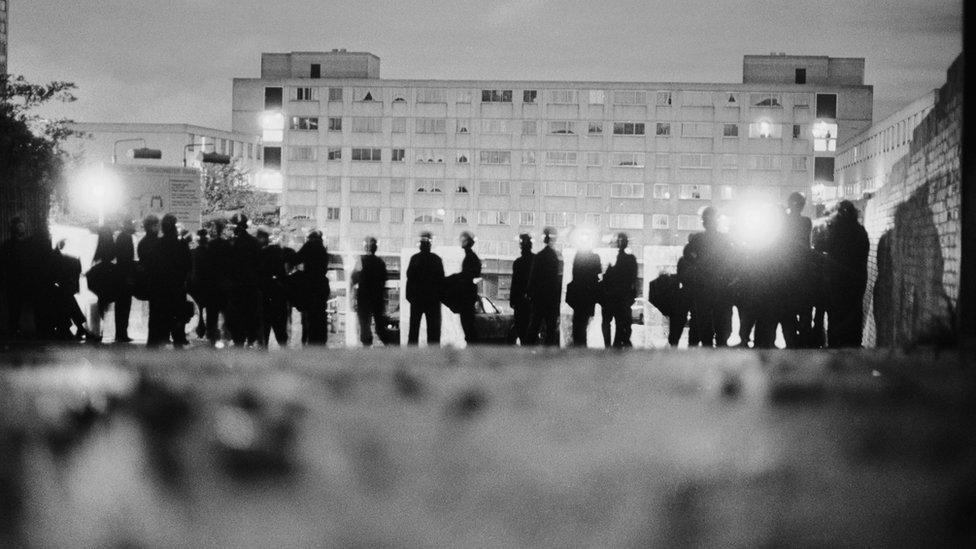More than 400 government files missing from National Archives
- Published
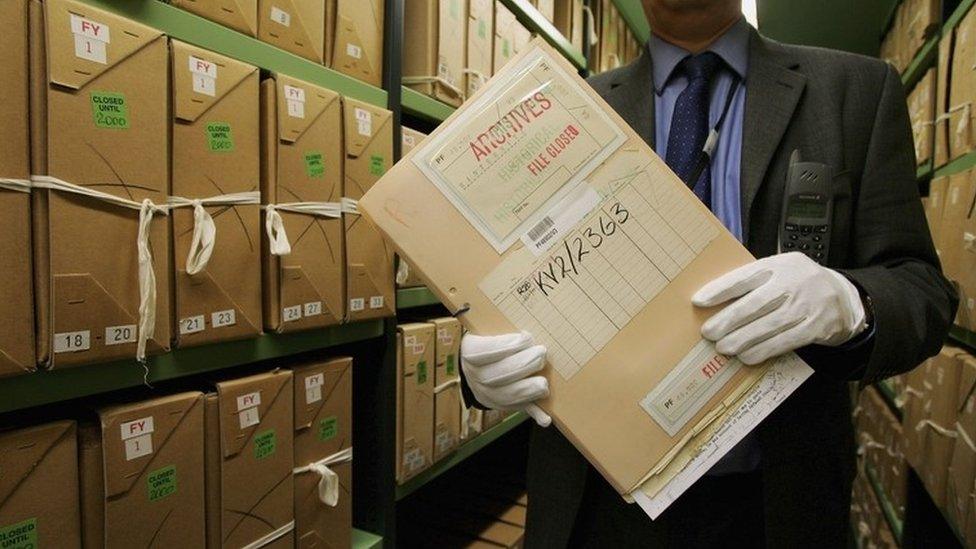
More than 11 million public records are held at the National Archives
More than 400 government documents have gone missing from the National Archives in the last four years.
They include Foreign Office files from the 1970s on "military and nuclear collaboration with Israel" and a 1947 letter from Winston Churchill.
One MP from the parliamentary group on official archives told the BBC he was "concerned" by their loss.
The National Archives said it was running a "robust" programme to locate the documents.
A response by officials to a Freedom of Information request from the BBC showed that 402 historical files remain unaccounted for since 1 January 2012.
They include more than 60 Foreign Office files, more than 40 from the Home Office and six from the official records of former prime ministers.
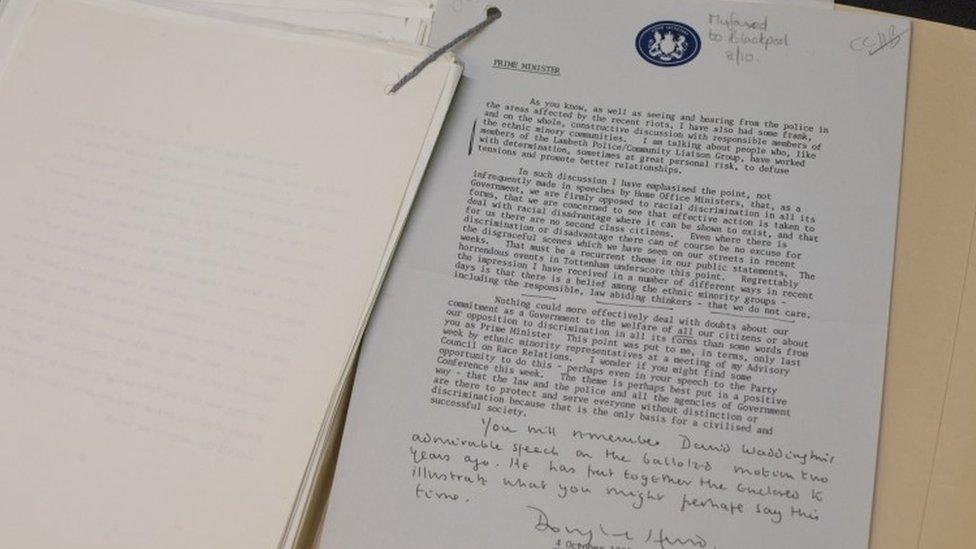
Government documents are often made public after 30 years, as with this Home Office correspondence on the 1985 Tottenham riots
The National Archives in Kew, London, holds more than 11 million official documents, many of which have been transferred from government departments and are often opened as public records after 30 years.
Among those listed as missing is a Foreign Office file from 1979 entitled: "Military and nuclear collaboration with Israel: Israeli nuclear armament".
The dossier appears likely to have been linked to a United Nations resolution from the previous year with the same headline which concerned "increasing evidence" of the country's attempts to acquire nuclear weapons.
'Worrying loss'
It was contained within a series of UK government files on arms control and disarmament in the 1970s.
Also among the papers registered missing is a letter from Winston Churchill regarding his memoirs, dated 15 October 1947.
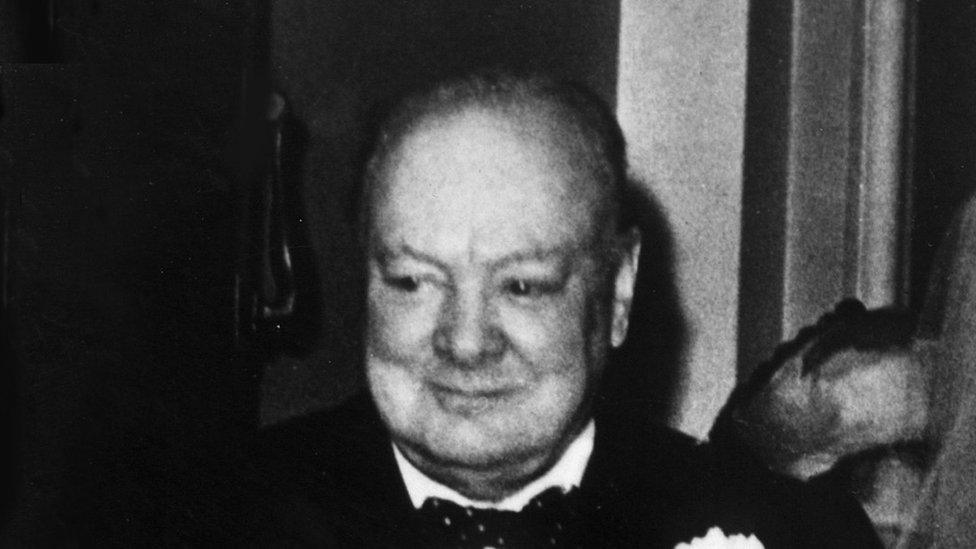
One of the missing files is a letter written by Winston Churchill in 1947
It was included in a file of correspondence and minutes from the former prime minister's personal assistant Sir Desmond Morton.
The letter appears to date from the time that Churchill wrote his acclaimed history of World War Two which helped him win the Nobel Prize for Literature in 1953.
The document was last accessed at the National Archives three years ago.
'Sense of connection'
Labour MP and historian Tristram Hunt, vice-chair of the All-Party Parliamentary Group on Archives and History, told the BBC that the list revealed a "worrying loss".
He said: "The challenge is to ensure that you've got the systems to prevent that, because with every loss of a potential piece of archive you're losing some history and understanding.
"You're losing a sense of connection and you're losing the fabric of the past."
He stressed that the National Archives were among the best in the world and were run "incredibly effectively and efficiently".
But he said he was "particularly concerned" about the loss of documents on the planning of Jerusalem from its time under British administration which he described as a "fascinating period".
Recovery effort
The missing files include a 1918 memorandum by the British architect and civil servant Sir William McLean who submitted a master plan to develop Jerusalem while preserving the Old City.
The file included 23 photographs depicting the plans including a "panoramic view of Mount of Olives; outer and inner city views".

Other missing documents
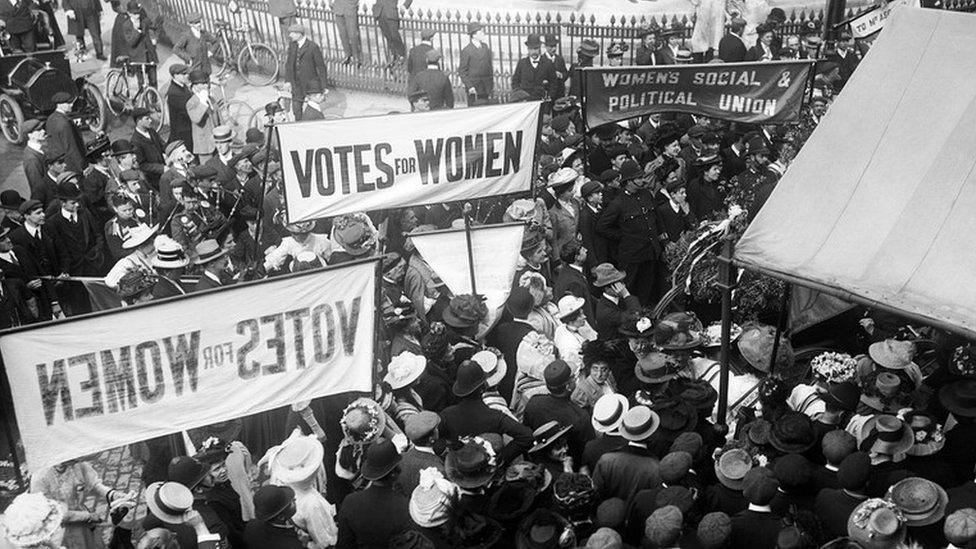
A Home Office file on "disturbances" by the Suffragettes in Westminster in 1910
A Foreign Office dossier from 1963 on Greville Wynne, a British national held by the Russians on allegations of spying
A file from the late 1940s on the "physiological and psychological aspects of tank design".
Minutes from a Treasury working party in 1973 on economic and monetary union in Europe - which laid the groundwork for the Euro nearly three decades later.

The number of lost files is a tiny proportion of those held by the National Archives and many are believed simply to have been misplaced.
The archives holds more than 11 million public records on behalf of the government and delivers more than 600,000 documents to readers each year.
Officials stress that lost files account for less than 0.01% of their collection and that such documents are listed as missing on their catalogue.
The National Archives said: "We are a working archive with a robust, ongoing programme dedicated to locating misplaced documents and many are subsequently found again after a thorough search."
It is not the first time that the disappearance of public records has come to light.
In 2011 it emerged that about 1,600 files had been reported lost, external from the National Archives in the previous six years.
The current rate of loss, at about 100 files per year, is an improvement on the previous figure.
- Published21 July 2016

- Published21 July 2016

- Published31 March 2016

- Published30 December 2015

- Published30 December 2015
